-
Maintaining Your Light

For many places around the globe, last week began the switch from Daylight Saving Time to Standard Time. While we still have approximately 24 hours per day either way, I did hear a TV weatherperson say that the days will now be shorter. Likely, she meant that sunset will be an hour earlier on our clocks, foregoing the news that the sunrise will also be an hour earlier.
Why am I writing about personal light today? I have been in a muddle lately. I even understand much of the reason for this: my life being stalled by those who thrive on blocking out or stealing other peoples’ light. Because of the sheer volume of such interfering that has come at me in a short amount of time, I have begun succumbing and dipping low, no longer able to notice the pulling and continue on my way forward.
A look at ancient texts for insight and solutions is in order!
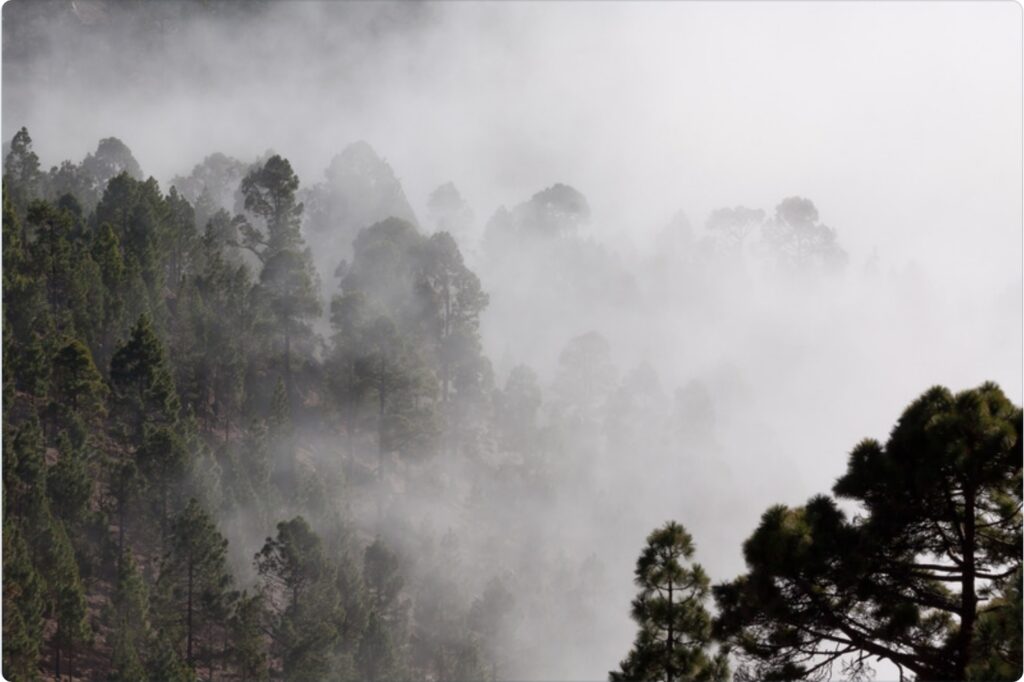
Last week’s Torah portion was Lech L’cha, which can be translated as, ‘Go Forward’ or ‘Go, Get Yourself Moving’. It follows the Torah portion of the previous week, “Noach” where we met Abram, who had settled with his family in Charan. Abram listens to God, and then at age 75, Abram Goes Forth. Being impulsive is rarely a good thing when making major changes, especially for the elderly! We may not know what lies ahead, but knowing that where you are or have been is no longer serving you well, this is the important first step. Abram followed the instructions of a formless Voice, he had context and a mission, and did not move on a whim or a guess.

It can be hard to move out of a place that you’ve always known, even if you’ve outgrown it, or just never felt right in. Becoming stuck or immobilized could be due to being bogged down or sapped of your energy by others: this is not an uncommon problem. In fact, there are many books available about this, about ‘energy vampires’ and light robbers. It is prudent to learn how to identify these people in order to mitigate their dampening and draining effects on you that can impair you from moving forward in your life and purpose. This is how I was feeling.
It’s not that easy sometimes to identify who is creating a drain or what barriers you are tolerating as you fail to stay on track with your goals and purpose. Lucky for us that our ancestors left us their tools!
We talked about the Torah portions of the last two weeks and I urge you to look at those for insight.
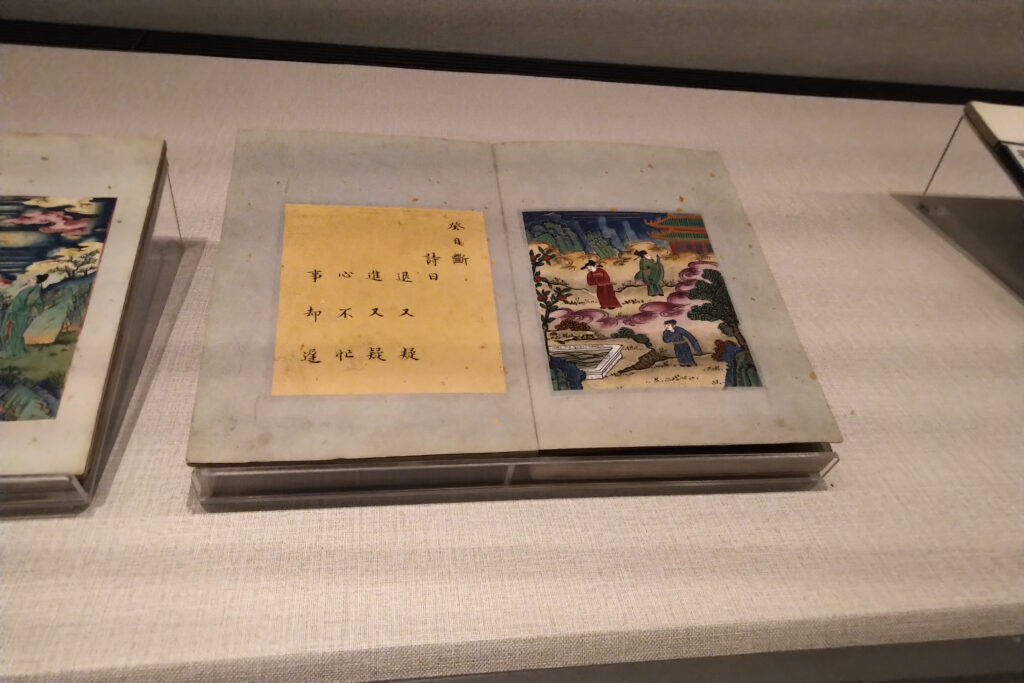
Yi Jing page, Taiwan National Museum ©susan j katz Another book that can be very helpful with understanding where you are at in a process is the Yi Jing or I Ching, which can be translated as the Book of Changes. This book contains 64 collections of lines called ‘Hexagrams’, each of which details six steps toward resolution of recognizable situations, such as Decay or Difficulty in the Beginning or Coming to Meet. It is a complex book that requires studying with an expert, and I had the privilege of studying at both the undergraduate and graduate academic levels with Dr. Titus Yu when he served on the faculty of a Canadian university.
Today, with having lost track of how problems were arising or where they were taking me, I turned to the I Ching. Sometimes, by knowing what the the problem is, it is possible to know which Hexagram to read. But, being blind to any insight, I proceeded with the traditional yarrow stick counting procedure that would produce a Hexagram for me.
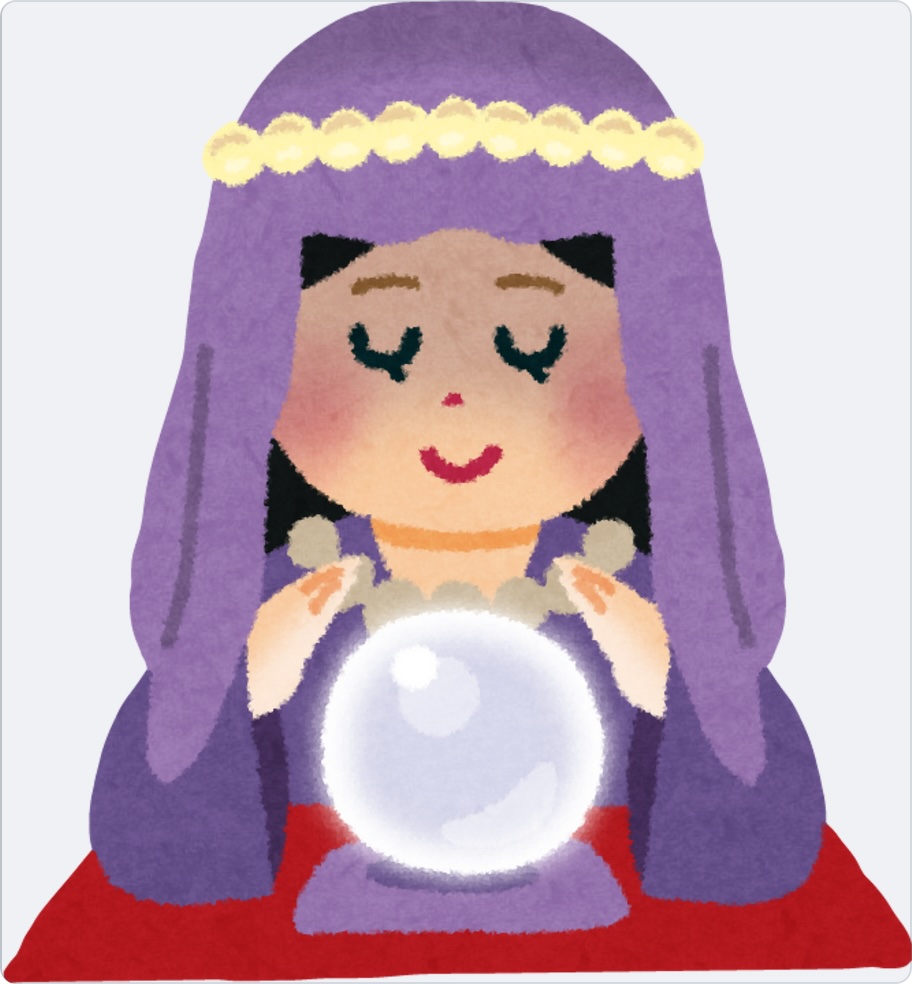
The I Ching does not tell fortunes Now, there is some false belief that the I Ching is a book of fortune-telling and divination. It is not, and certainly not any more than the Torah or Bible are. This misrepresentation came about when the Book was introduced to North Americans during the glorious hippie days of the ’60’s and ’70’s, when everyone ‘did tai chi’ and ‘tossed coins’ to get their fortune told via this inscrutable and mysterious Chinese book of fortunes. The divination misconception persists in North America. In fact, I was recently at a Jewish farm centre that had an abundance of yarrow growing wild on its acreage, and I suggested that the farm harvest and dry the yarrow stalks to sell for those who use the I Ching as some much needed farm income. They declined, saying that the I Ching was a religious book of divination, forbidden in Torah, and could not be promoted by them. It is a shame that this great book of wisdom has been cast as a cookbook for fortune telling.

© susan j katz 2024 Sorting yarrow stalks to determine a Hexagram is quite involved and tedious, and it is meant to be that way. Briefly, fifty yarrow stalks are gathered and divided and counted in a precise system that uses both the right and left hands and fingers of both hands. In psychological parlance, both sides of the brain are being engaged. The lengthy time for the formulaic repetition and manipulation of the stalks allows the brain to move to into subconscious realms. You always start with a question, a very precise question, and keep it in mind as you process the stalks. This allows the brain’s linear and non-linear processes to integrate, and the inner answers that once were obscure, can now be understood. We indeed, have the answers within us. The I Ching helps us to access them. No intermediary person is needed.
The first Hexagram I obtained was ‘Conflict’. Rats! I thought, my problem has nothing to do with conflict! But, with faith that that there was something there for me, having made those piles of stalks over and over again, I read on. Only the two moving of the lines in this Hexagram had to be read. The text at the second step reads that it is important to step back when it is clear that a conflict can not be won, and that this retreat brings no shame, and could save one’s village from damage as well. The other line text says that the correct action at a stalemate is to go to an impartial authority or judge to resolve a conflict and to not pursue it further.
These two moving lines must then be transformed to form a new Hexagram. This one is called, ‘Progress’. The image of Progress is:
The sun rises over the earth
The image of Progress
Thus the superior man himself
Brightens his bright virtueAccording the the I Ching, we are all born with tremendous good light and purpose. As time goes on, we lose much of this, often due to the acts of others. The superior person learns how to move forward without losing their light to others. One way is to use one’s brightness to become a leader who gathers others together to honour a higher sovereign, bringing unity and reward to all. The alternative, of shining your light merely to be seen or for reward and praise, creates acrimony, rejection from those in charge, and loss of brightness.
As you see, in the I Ching, there are no specific answers or instructions given for your situation, such as stock tips or messages from deceased relatives. Instead, there is universal imagery for you to discern and find clarity to your answers, that already lie within yourself.
A third way we can lose our energy and potential through others is told in the indigenous allegory of the stick/mud/corn people. The corn people want to climb high in the sky, and the stalk people are the helpers that allow them to climb higher than they could on their own. Thus supported on a stake, the corn thrives. But, then there are others below who are jealous and see the weakness in this system. They do not see that being a mud person is also a good and natural path, just as a being a corn or stalk person is a natural path. The mud folk make the over extended stalk people fall over, and if not strong on their own, the corn people also fall down to the mud level. To remain aloft, one must have strength and clarity.
If you find you have lost your energy or focus or motivation, consider these stories. Who are you? What is clear for you and what is not? when did things slow down or stop? was anyone else involved? You can learn a great deal about how to proceed, reclaim lost focus, and bypass interrupters to continue to shine your light.
By the way, you wish to learn more about the I Ching, please don’t hesitate to reach me through my contact form, or send me an email request: susan at susanjkatz dot com.
We are born full of brightness and light. These books of our ancestors help us know how to preserve clarity and share our wonderful gifts, and avoid the dampening forces of others.
Lech L’cha, Go Forth and Shine Your Light!
-
Work on What Has Been Spoiled
Originally published on 5 October, 2022
 As the waters of the COVID-19 pandemic’s tsunami of disruption recede, our world of experiences and expectations have changed, too. What had formerly been familiar now has an uncanny cast to it; favourite places for entertainment, work, travel, recreation, places of worship, and healthcare institutions look and operate unlike they ever used to, even as restrictions to access are lifted.
As the waters of the COVID-19 pandemic’s tsunami of disruption recede, our world of experiences and expectations have changed, too. What had formerly been familiar now has an uncanny cast to it; favourite places for entertainment, work, travel, recreation, places of worship, and healthcare institutions look and operate unlike they ever used to, even as restrictions to access are lifted.So many of us sat through this pandemic, chafing at the bit to go back to having things the old way, the familiar way: the way we, and our ancestors before us, made them. But, these things are forever changed, in our memories, in our minds, in our emergence back into them post-pandemic.
Rather than trying to fit all the pieces back in, as they once were, imagine instead that we had been afloat in an Ark, such as that of the Biblical Noach. We and all the living beings gathered into it, have been weathering a Great Flood. In Noach’s Ark, do you think that the passengers all imagined, in their human and non-human minds, that things would be just the same once the rain stopped?
Now, imagine yourself after a similar pandemic great flood, jostled and perhaps cast afloat: and the waves have relaxed. Deposited by a gentle surf, face down upon a wet sand of some strange beach; exhausted, grateful for the solid land, confused. Yet, the landscape is not unfamiliar.Humanity has been tossed about. Regardless of our medical and scientific experts attempts to control Nature’s emergent virus-child, the Novel Coronavirus, it has been an exhausting two-plus years for those of us who have survived. We mourn the losses of loved ones, of means of livelihood, neighbourhoods, sources of supplies and food, and importantly, patterns and rituals that we had always relied upon for comfort and support.
 Our earliest traditions were arose from these reliable things of Nature: the sunrise, the sunset, the seasons. Weather patterns of the ancient lands where our beliefs and lore were birthed, are now, too, washed over with sand and debris. We dig to find and restore them. But they are weighted down, broken in places, and entangled with seaweed.
Our earliest traditions were arose from these reliable things of Nature: the sunrise, the sunset, the seasons. Weather patterns of the ancient lands where our beliefs and lore were birthed, are now, too, washed over with sand and debris. We dig to find and restore them. But they are weighted down, broken in places, and entangled with seaweed.
© Susan J Katz 2018 When I lived in the remote desert of the American southwest a few years ago, my family put up a stake of money for a lovely Oneg Shabbat dessert reception at the synagogue I attended, in honour of a significant birthday milestone. I was going to chant the haftarah, the weekly reading from the book of Judges, that I had chanted at my Bat Mitzvah so many decades before. On the day of the Oneg, I awoke at sunrise to get ready for the 1-1/2 hour drive into town to the synagogue. Looking out the window of my mobile home, I saw that a torrential downpour had come down overnight.
Knowing how fragile and exposed the desert roads were, I checked the news and internet for word about the possible closure of the one road we had that ran 25 miles before connecting to a highway and the rest of the world. There was nothing from the department of transportation or any other news, so I got dressed and drove.
After the first 10 miles I suspected the worst outcome to the road caused by the storm because so many trucks and cars were heading back into town. But, I kept on going: because I had to get there to chant the Haftarah and celebrate with my friends and indulge in all the goodies my family had arranged for me.
After all, I reasoned, I had my little truck, and experience driving in slush and snow and unmarked roads in Alaska and as a Forest Ranger – and there was no report of a road closure, no signs on the road to go back: Just those darned vehicles heading towards me and back into town. Of course, there it was: after driving 22 of the 25 miles towards the highway the road was completely gone.
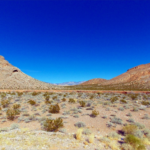 The desert had completely swallowed up the road. Wet sand, Brittle Bush and Cacti sat quietly there in what once was our lifeline out to the world, as if they had been there all along. I saw two police cars, real tough Hummers, slipping sideways in the muck and finally giving up, almost like a pair of mud wrestlers trying to slog through to the finish. It made me feel a bit better, that I’d made it as far as they did in my little truck, but it was also clear that after driving 45 minutes already, then having to turn around and drive 45 minutes back, then risk another 2 hours over the mountainous back route, if it was even open, I was going to miss my lovely special Shabbat event.
The desert had completely swallowed up the road. Wet sand, Brittle Bush and Cacti sat quietly there in what once was our lifeline out to the world, as if they had been there all along. I saw two police cars, real tough Hummers, slipping sideways in the muck and finally giving up, almost like a pair of mud wrestlers trying to slog through to the finish. It made me feel a bit better, that I’d made it as far as they did in my little truck, but it was also clear that after driving 45 minutes already, then having to turn around and drive 45 minutes back, then risk another 2 hours over the mountainous back route, if it was even open, I was going to miss my lovely special Shabbat event.I drove back and passed our little desert airport, wistfully thinking about running into the little terminal shack and commandeering some pilot who might be sipping a quiet cup of morning coffee to fly me out to the synagogue, which shared a fence with a large airfield anyway. Energy pulsed through me to do that; but I knew the reality was that Nature had been busy overnight, and that although I would not be there, my friends would be enjoying the spread of delectable food and decorations on my behalf. Finally, the phones were working again, and I was able to get a call out to one of them and let him know about the road washout. As urbanites, it would be harder for them to visualize how it was even possible for a road to completely disappear, but when you live in the wilderness, deferring to Nature is the rule.
So, what is the subject of my post, ‘Work on What Has Been Spoiled’?
 As we pick ourselves up from those pandemic years of being tossed about in waves of Coronavirus and slog up the beach, now castaways looking for something familiar, we are each likely carrying old expectations of what should be happening, or how things will look. But we all can see – they aren’t the same. We can try to force things to go as expected, as they had been before the flood, just as I had thought by running my little truck through the hopelessly washed away desert road to get to my duties at synagogue and my party. My idea of hijacking a pilot and flying into town would most likely have downgraded to me stealing an airplane and flying it, without any training in doing so.
As we pick ourselves up from those pandemic years of being tossed about in waves of Coronavirus and slog up the beach, now castaways looking for something familiar, we are each likely carrying old expectations of what should be happening, or how things will look. But we all can see – they aren’t the same. We can try to force things to go as expected, as they had been before the flood, just as I had thought by running my little truck through the hopelessly washed away desert road to get to my duties at synagogue and my party. My idea of hijacking a pilot and flying into town would most likely have downgraded to me stealing an airplane and flying it, without any training in doing so.The most likely outcome of such persistence in working things that have been spoiled, is to get stuck, get mad, and become very tired or fail. These days, people attempt to avoid this pain or failure with what is known as a ‘hack’. For example, taking a shortcut by making an illegal left turn onto a one-way street and then expecting everyone to get out of the way, and even blaming the law-abiding drivers of causing the resulting traffic jam.
As a friend put it, for the past many years we have been living in the, “I Got Away With It” culture.
If the ‘hack your way through and get away with it’ strategy is not appealing, I applaud you.
Our ancient wisdom texts have lovingly preserved stories for us to see and learn how to responsibly and morally respond to change. We can find a new way in our new world.
 An ear worm, a loop of rhythmic words, has been circulating in my brain the past few weeks: it repeats, ‘Work on what has been spoiled’. In fact this is one name for Hexagram 18 of the I Ching, the ancient Chinese Book of Changes. ‘Decay’ or ‘A Can of Worms’ is another translation for this Hexagram’s name. The I Ching is a two thousand year old book of wisdom from East Asia, created to help us understand how to determine our actions in the midst of life’s constant and inevitable changes. From learning how to understand imagery and metaphor, rather than rely upon analytical thinking and problem solving, we can find out where we are in a situation, and thus make decisions on how to proceed.
An ear worm, a loop of rhythmic words, has been circulating in my brain the past few weeks: it repeats, ‘Work on what has been spoiled’. In fact this is one name for Hexagram 18 of the I Ching, the ancient Chinese Book of Changes. ‘Decay’ or ‘A Can of Worms’ is another translation for this Hexagram’s name. The I Ching is a two thousand year old book of wisdom from East Asia, created to help us understand how to determine our actions in the midst of life’s constant and inevitable changes. From learning how to understand imagery and metaphor, rather than rely upon analytical thinking and problem solving, we can find out where we are in a situation, and thus make decisions on how to proceed.I saw this cartoon and it caught my attention:
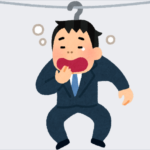 The figure of a sleepy man yawning on his way to work on the subway, suspended from the hanger still in his dress suit, is supposed to be funny. And, isn’t it so true? Boredom has set in where once competition and higher education had urged young minds to excel, to think outside the box and be curious and inventive and creative and courageous. Education meant to open our minds is now just an ornament to put on a job resumé to gain employment and go back to sleep.
The figure of a sleepy man yawning on his way to work on the subway, suspended from the hanger still in his dress suit, is supposed to be funny. And, isn’t it so true? Boredom has set in where once competition and higher education had urged young minds to excel, to think outside the box and be curious and inventive and creative and courageous. Education meant to open our minds is now just an ornament to put on a job resumé to gain employment and go back to sleep.Physical and mental challenges are an essential part of maturation and becoming responsible and ethical; and sadly, today, challenges are often met by getting by without them.
This is the underbelly of ‘Work on what has been spoiled’. Teaching your child how to do the hard work of their math homework rather than hacking a grade by doing it for them, is the way to nurture independence and engagement, rather than creating a bored working stiff, as in the cartoon above.
When we do these undisciplined, unsanctioned hacks, things decay, become decadent: instead of good food, the food cans now contain maggots.
 I once met with a patient who had acquired a life threatening infectious disease. He was hospitalized, with no friends or family. He told me that he had been raised in one of the wealthiest families in the region, spent his time partying on the family’s yachts and skiing in the Alps and Aspen; all those things that were just the norm for him. They had servants and he never had any responsibilities. As a young man he decided to get a remote cabin in the mountains and live like the film character, Jeremiah Johnson, a backwoodsman, along with his girlfriend.
I once met with a patient who had acquired a life threatening infectious disease. He was hospitalized, with no friends or family. He told me that he had been raised in one of the wealthiest families in the region, spent his time partying on the family’s yachts and skiing in the Alps and Aspen; all those things that were just the norm for him. They had servants and he never had any responsibilities. As a young man he decided to get a remote cabin in the mountains and live like the film character, Jeremiah Johnson, a backwoodsman, along with his girlfriend.Although still young, his health began to fail: his earlier, carefree partying days of sharing drug needles and bodily fluids with others had given him some diseases that weakened him so much that his leg broke while out hiking. His dog helped him get back to the cabin, but his girlfriend abandoned them. So, there he was, alone and very sick. Eventually some neighbours brought him into town and he made it to the infectious disease ward for treatment.
He said he had no skills for living: everything had been given to him with no challenges his whole life. He saw the folly of shirking any education in even the basic skills for taking care of oneself all too clearly.
Recognizing where one is at is the first step toward finding your way forward. This patient was ready and eager to begin work on what had been spoiled.
This topic is relevant to the New Year of Autumn. We get a chance, before or even after, finding ourselves lost and injured in a snow bank, to reflect on what we have learned this past year, and how we can move forward better in the new one. That patient had been raised to shirk responsibilities and assign blame to others for any problems or shortfalls. Now, in his solitude, he could see that he alone was in charge of his decisions after all, not others. Saying “I can do better and want to be responsible” was the most powerful thing he could do for himself.
The Hexagram, ‘Work on What Has Been Spoiled’ is not about what has been Spoiled: it is about Work. Just as moving forward into the world after the pandemic is not about what the Coronavirus did to us; it is about the honest work, without blame of oneself or others, and of adapting to a changed world.
Work is hard! with guidance from our ancestors and choosing to engage with the lessons in their books of wisdom, we, too, can see how to move forward, with awe and wonder and pride, and with reflection.
May your New Year be filled with growth, with wisdom from our elders, and a promise for the future.
Shana Tova…Susan J Katz

